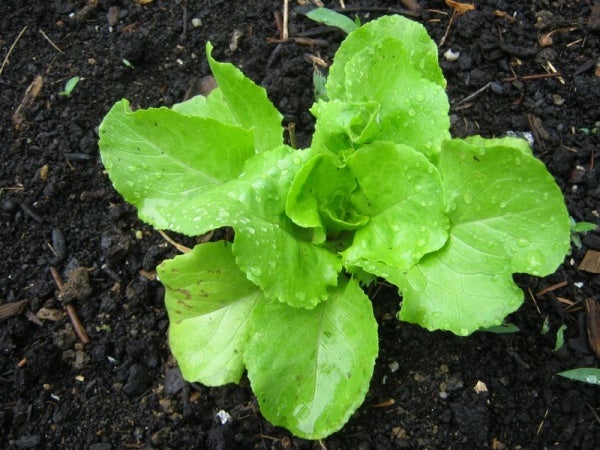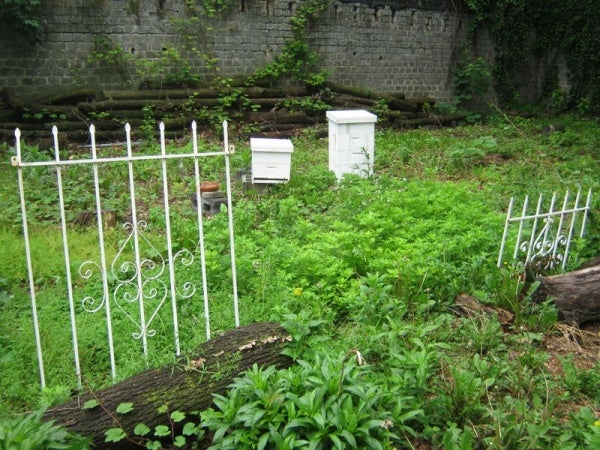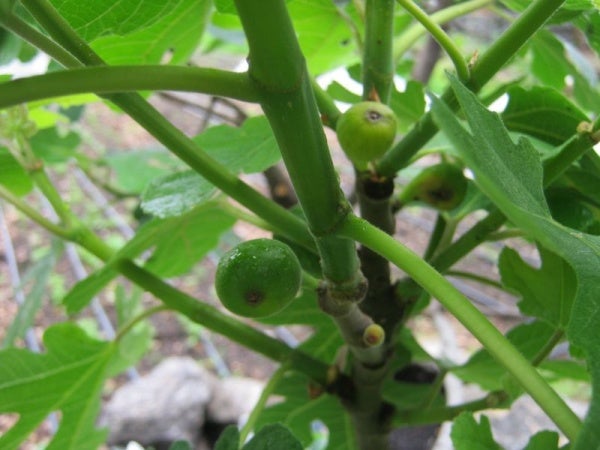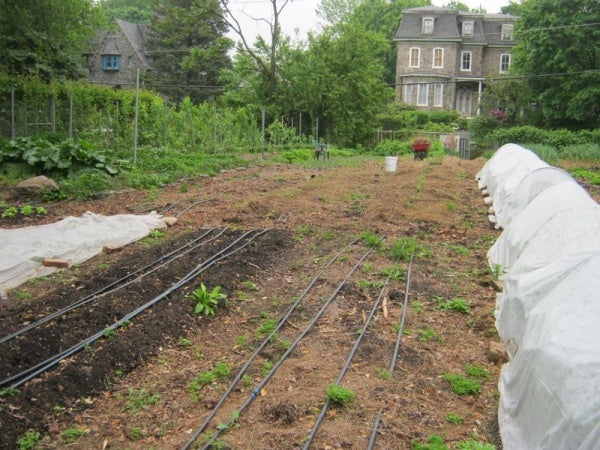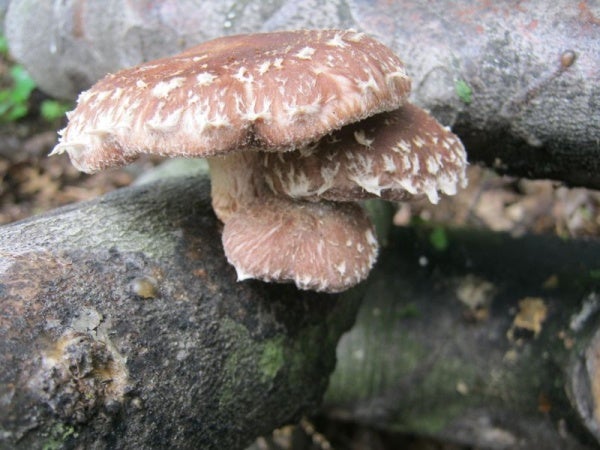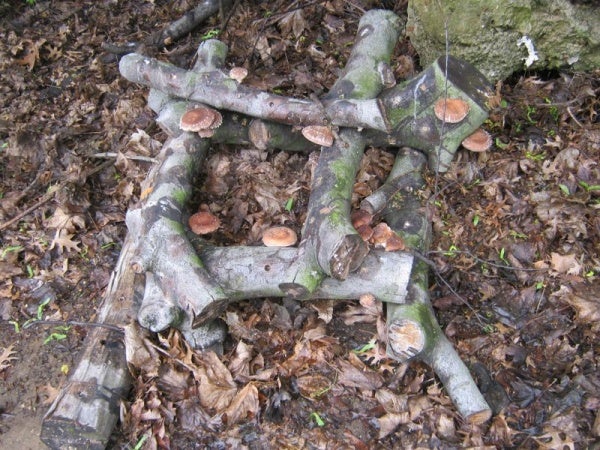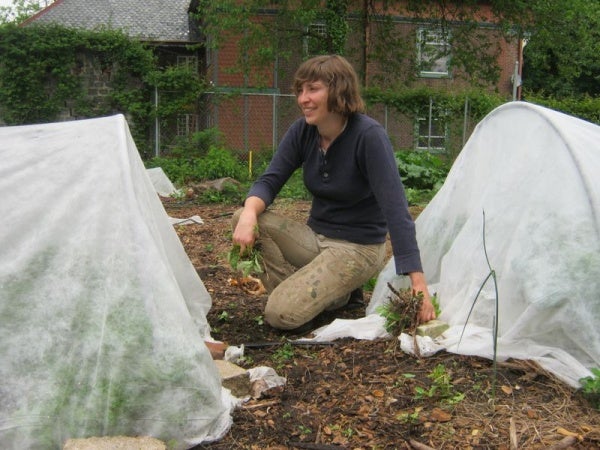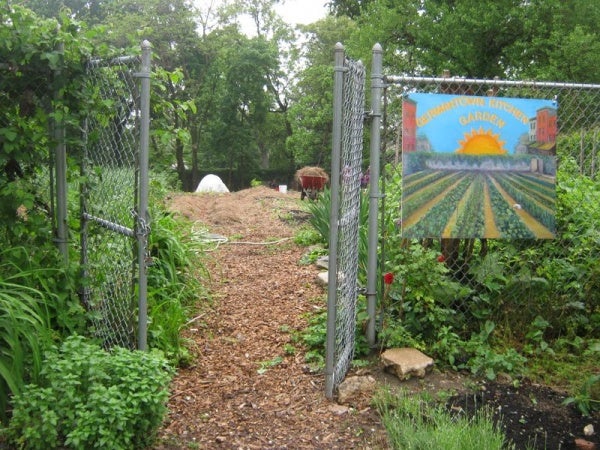Germantown Kitchen Garden brings country life to urban environs
Since she and her husband, Matt McFarland, launched their half-acre farm on Penn Street two years ago, Germantown resident Amanda Staples has learned what farming is all about.
Having weathered last summer’s floods only to watch this spring’s water bill double because of April’s drought, she knows the truth of her endeavor.
“You can’t control it,” Staples says, hands smudged with soil, stooping contentedly to pull weeds every few moments during a visit with NewsWorks on a cloudy May morning.
With an undergraduate degree in religion and various odd jobs under her belt, Staples was engaged to McFarlane when they began looking for a chance to leave their house in Kensington, where they had been cultivating a garden in an abandoned city lot on Frankford Avenue.
They wanted to begin an organic farm on as large a scale as city living would permit.
“I had a growing interest in agriculture,” Staples explains.
Hard work at the outset
She and McFarlane spent the 2007 farm season in Lancaster on an immersive organic-farming internship. That was designed to help them prepare for running one of their own.
“This is insane,” she said in 2008, upon first seeing the half-acre lot that is now entering its third year as Germantown Kitchen Garden. “It’s been abandoned for 30 years. It’s a jungle.”
Originally the site of a driveway and apartment building that burned down decades earlier, the state of the overgrown property made it difficult to envision a successful farm there. It was full of wild rosebushes. Some were 20-feet high.
“We couldn’t even walk through it,” she remembers.
The more they thought about it, though, it seemed like the only affordable chance to try farming without giving up the perks of city life.
As she’s saying this, a burst of plaintive clucking interrupts Staples.
“What?” she yells, poking her head beyond the wooden fence that borders the lot’s western side.
The chickens subside temporarily.
That first year, clearing the lot was quite a project, but McFarlane and Staples had “a huge motivator to get cleaned up.”
Their wedding took take place on the new land a year after they purchased it. Instead of gifts, they asked their friends to contribute to an orchard fund.
The following spring, Germantown Kitchen Garden sold its first harvest from 10 garden beds. Eight local households enrolled in CSAs (Community Supported Agriculture), in which customers pay the farmer at the start of the growing season and then receive weekly shares of the harvest.
Last year, in addition to continuing the CSAs, Staples opened a weekly farm stand outside her gate on Penn Street.
It will resume for the season within a few weeks, and 10 families are now enrolled her CSA program. She and McFarlane now live in a house on lot’s west side.
She is not alone
Since financial considerations recently led McFarlane to re-enter the workforce as a computer programmer, Staples might seem lonely, maintaining the flourishing garden on her own in between days at a part-time job with Bartram’s Garden in southwest Philadelphia. But, company abounds.
The constant birdsong from the stately walnut trees bordering the lot competes with the chickens’ conversation, and the springtime soil is a city robin’s nirvana.
“I weed and the robins follow,” Staples laughs, leaving the worms to their fate.
Honeybees from two on-site hives hum across the rows and sip water from the dark, tender soil of planting trays.
Not all the company is welcome, however. A groundhog who helped himself to the burgeoning produce found himself in a trap and on a quick trip across the Schuylkill.
A small wooden box nailed high on a large tree trunk is ready for a family of bats, but Staples says there’s no evidence that anyone has moved in yet. If they do, it’ll be bad news for the mosquitoes, which is good news for everybody else.
Another resident might put one in doubt as to the actual ownership of the place. A white cat, who adopted Staples two years ago, prowls the rows with total absorption, smudges of soil on her head and heels. Kitty spends hours poised over the compost heap, waiting for mice.
“She’s living the dream,” Staples says.
A bountiful variety
The corners of the farm are still a riot of weeds, since the clearing is a work in progress. Still, the farm now boasts about 40 different plant varieties including lots of leafy greens, tomatoes, beans, eggplant, carrots, berries, cucumbers, peas and potatoes.
The fruit orchard went in last year, promising apples, pears, peaches, plums, figs and cherries.
This year’s new veggies include radicchio, endive and escarole. For Staples’s own gourmet dinners, a perfect crop of brown shiitake mushrooms sprouts on a square of beechwood logs.
Because the farm and some of its seedlings are subsidized through the Pennsylvania Horticultural Society’s City Harvest Growers Alliance program, Staples donates part of her harvest throughout the year to food pantries for Philadelphia families in need.
Plans for the future include a medicinal herb garden and perhaps a patch of edible forest.
“We wanted to have the benefits of living in the city,” Staples says of launching a farm in Germantown.
Now, she and her neighbors have the best of country living, too.
WHYY is your source for fact-based, in-depth journalism and information. As a nonprofit organization, we rely on financial support from readers like you. Please give today.





